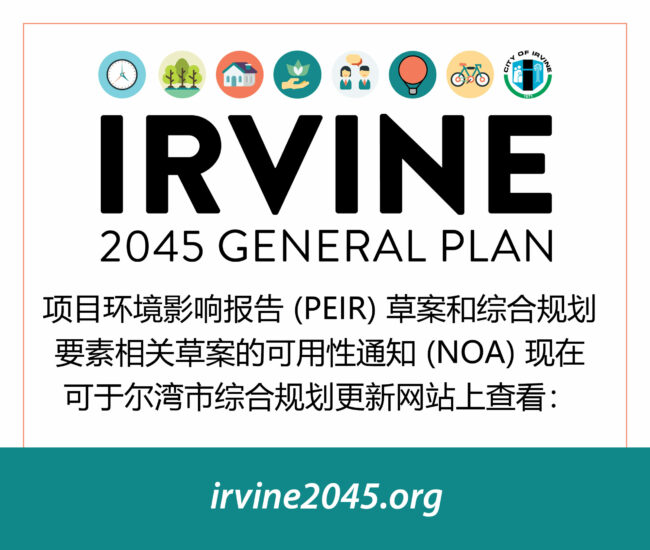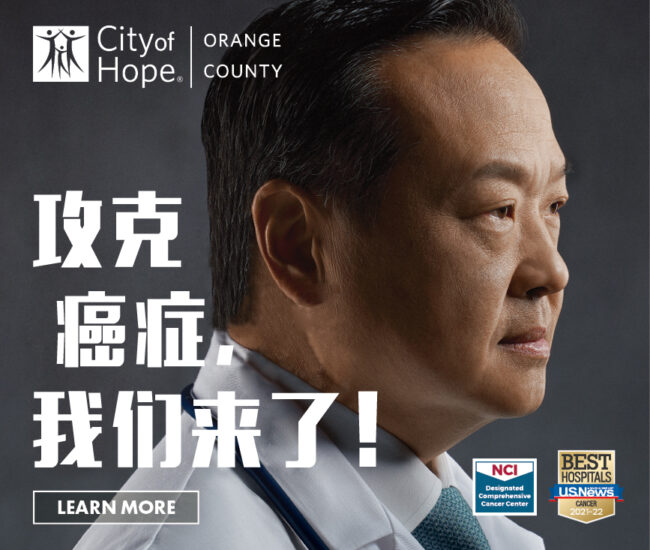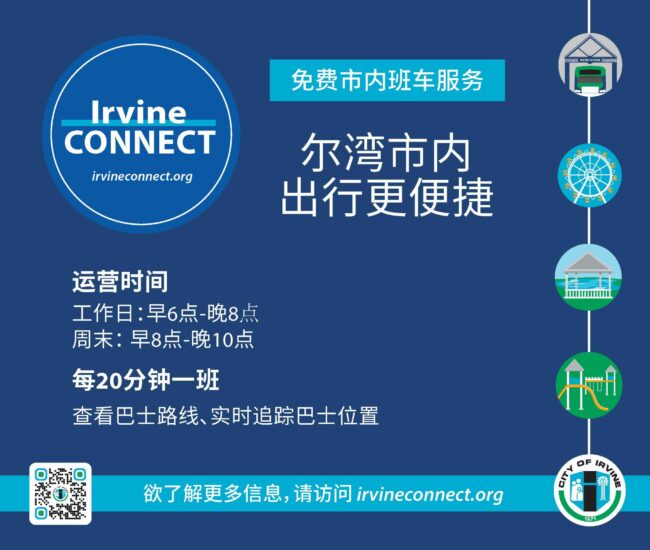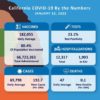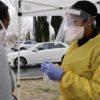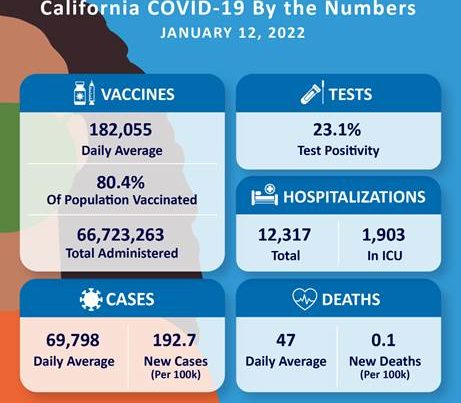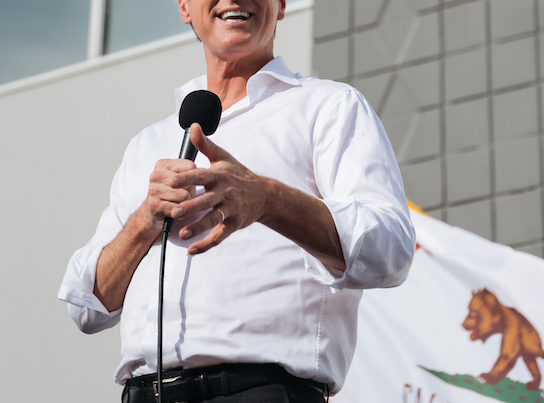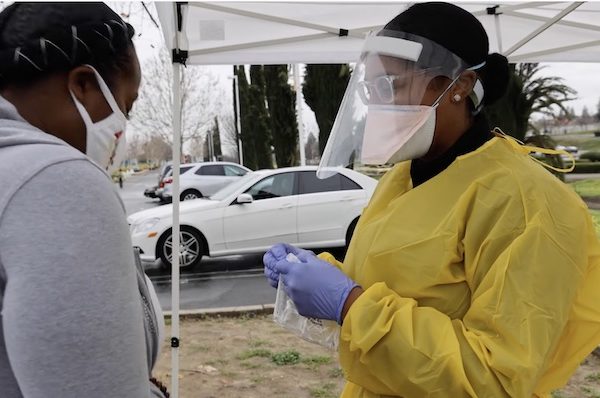Governor Newsom Signs Into Law First-in-the-Nation Expansion of Medi-Cal to Undocumented Californians Age 50 and Over, Bold Initiatives to Advance More Equitable and Prevention-Focused Health Care
Health care trailer bill expands full-scope Medi-Cal to approximately 235,000 low-income undocumented Californians age 50 and older
AB 133 transforms behavioral health system for California youth and expands the behavioral health housing continuum of care
Includes investments to extend Medi-Cal eligibility for postpartum individuals and support continued telehealth flexibilities
At Fresno health clinic, Governor encourages more Californians to get vaccinated against COVID-19 amid growing threat of Delta variant
FRESNO – At a health clinic in Fresno County today, Governor Gavin Newsom signed legislation making California the first state in the nation to expand full-scope Medi-Cal eligibility to low-income adults 50 years of age or older, regardless of immigration status – a major milestone in the state’s progress toward universal health coverage.
 The health care trailer bill, AB 133, makes bold changes toward a more equitable and prevention-focused approach to health care through expanded behavioral health initiatives supporting California youth and people with severe behavioral health challenges, including those experiencing homelessness; extending Medi-Cal eligibility for postpartum individuals; supporting continued telehealth flexibilities; and advancing the state’s innovative CalAIM initiative.
The health care trailer bill, AB 133, makes bold changes toward a more equitable and prevention-focused approach to health care through expanded behavioral health initiatives supporting California youth and people with severe behavioral health challenges, including those experiencing homelessness; extending Medi-Cal eligibility for postpartum individuals; supporting continued telehealth flexibilities; and advancing the state’s innovative CalAIM initiative.
“We’re investing California’s historic surplus to accomplish transformative changes we’ve long dreamed of – including this historic Medi-Cal expansion to ensure thousands of older undocumented Californians, many of whom have been serving on the front lines of the pandemic, can access critical health care services,” said Governor Newsom. “I thank the Legislature for its steadfast partnership to bring California closer to universal health care coverage and advance comprehensive initiatives to ensure California’s communities come back from the pandemic stronger and healthier than before.”
Under AB 133, approximately 235,000 Californians aged 50 years and older are newly eligible for Medi-Cal, including preventive services, long-term care and In-Home Supportive Services. In 2019, California became the first state to extend Medi-Cal coverage to all eligible undocumented young adults up to the age of 26 and with today’s expansion, the state has the most inclusive health coverage for low-income persons in the country. AB 133 also extends the Medi-Cal postpartum care period from 60 days to 12 months without requiring a mental health diagnosis, including for eligible undocumented Californians.
Governor Newsom signed the legislation today at a Clinica Sierra Vista location in Fresno administering COVID-19 vaccinations to residents, in addition to serving the community’s primary medical, dental and behavioral health needs.
At Fresno health clinic, Governor Newsom signs health care trailer bill expanding Medi-Cal to undocumented Californians age 50 and over
During his visit, the Governor highlighted the state’s multi-pronged strategy to reach communities with low vaccination rates and the first-in-the-nation measures announced yesterday to require all state workers and workers in health care and high-risk congregate settings to either show proof of full vaccination or be tested at least once per week. Local governments and businesses are encouraged to adopt similar measures amid the growing threat of the Delta variant.
Changing the life trajectory of children and youth in California, the health care trailer bill creates a prevention-focused behavioral health system in which all Californians age 25 and younger are supported and routinely screened for emerging and existing behavioral health needs – enabling them to grow up healthier, both physically and mentally. The initiative includes the creation of a statewide portal to connect young people with telehealth visits.
AB 133 implements an important component of the California Comeback Plan’s $12 billion homelessness package, creating the Behavioral Health Continuum Infrastructure Program at the Department of Health Care Services (DHCS) to expand treatment and housing options for all Californians, including people experiencing homelessness who struggle with the most acute behavioral health needs. AB 133 implements the Plan’s $2.2 billion investment for DHCS to provide competitive grants to local governments to construct, acquire and rehabilitate real estate assets or to invest in mobile crisis infrastructure to expand the community continuum of behavioral health treatment resources. The Plan’s total investments in this space constitute the biggest expansion in decades for clinically enhanced behavioral health housing.
In addition, AB 133 advances the state’s CalAIM initiative, a major transformation of the delivery of Medi-Cal to better manage risk and improve outcomes through whole person care approaches and addressing social determinants of health, and extends telehealth flexibilities allowed during the pandemic through December 2022, including payment parity for services delivered through audio-only modalities.
50% of L.A. County Residents 16 and Over are Fully Vaccinated
本網站內容嚴禁未經授權轉載、複製。本網站僅為一般訊息平台,所發內容不代表本站立場,不構成任何投資、購買、要約等建議,不對資料之完整性、精確性等作任何保證。


